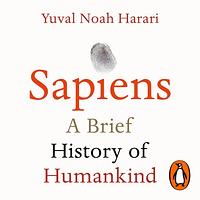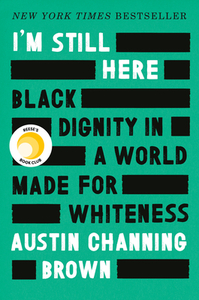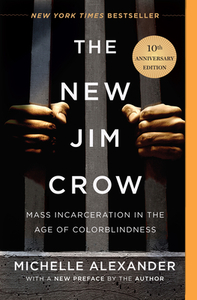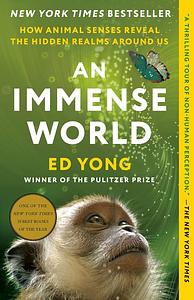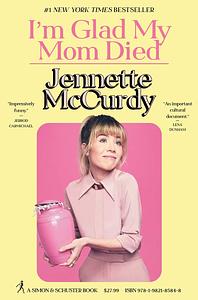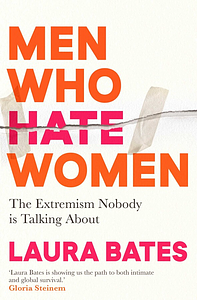Take a photo of a barcode or cover
rebeccazh's Reviews (2.89k)
I tried many times to get into KF Breene's books but it just wasn't clicking for me until this one. I enjoyed this main character much more than the other ones (Midlife Levelling, Reagan, Penny) and it was fun to be brought along for the ride as Charity discovers the magical world. Also, werewolf romances are my weakness and this trope gave the book a big plus point.
Jacky Leon continues to be awesome. These books usually take around 20% before the plot starts and in this one, Jacky faces more assassination attempts after being outed by the BSA. It hurts me to see how people (e.g. her family) treat her with blame instead of support for doing things outside of their comfort zone. Zuri makes an awesome cameo with Kushim and the assassination plots tie back to a long-ago plot about Lisa's death. Hope we get to find out more about Liza. The shadow of her death is clearly the invisible but felt 10th member of the family.
At first glance, I thought this was similar to Figuring. The prose is clear and coherent and it isn't bogged down by insignificant details like Figuring was. I loved the first chapter. DNF-ing because I found out through skimming reviews that the author starts to fictionalize the lives of these scientific greats. Not in the mood for historical fiction.
Getting through this book was a bit of a pain. Nonfiction is meant to provoke reflection and thinking but the author's writing is simplistic and seemed to strip out depth and nuance from topics. He also sounds blase about sensitive topics. I did learn lots of interesting facts but had to force myself to get through the chapters and ended up skipping some.
Short and powerful read. I was in turns, furious, heartbroken, moved and contemplative. There were some quotes that I really loved, and I think the ending about the death of hope and showing up anyway will really stay with me.
Picked up this book because I watched a documentary about prison and was interested to know about the critiques of it. Lots of numbers and statistics for her argument, argument was fairly simple -- it's more of an unveiling of the racial politics at every stage of the criminal justice and prison systems. I appreciated the beginning, which gave the context for how race evolved into what it did in the US -- race is basically racial caste, a morphed holdover from the era of slavery. Secondly, we're now in the era of color-blindedness, where you're not allowed to talk about race directly, and as such, new terms such as 'criminal' and 'war on drugs' have popped up to stand in for for the forbidden word, 'race'. The way the justice system fails the people who need it the most is a sad truth that I had already picked up from the books about battered women and their fight for their safety and freedom from batterers. It never gets less upsetting to read about injustice, where innocent people or young people are forced into prison.
Since getting a pet hamster, I've noticed that my hamster's eyesight is not very good. She probably can't see anything at all unless it is right in front of her. She has an amazing sense of smell and hearing and can often tell if someone has stepped into the opposite end of the room of her cage (a tank cage so the sound should be muffled) and can tell when I've touched something in the cage because she will beeline for the thing and give it a thorough sniff. She seems to navigate the world primarily by sound and smell.
All of this led me to be very curious about the different ways animals navigate the world, which is why I picked up this book. This book answered my questions and then some. The main thesis of the book is simple: stop judging animals by humans' standards. They have senses we can't imagine. They're built to thrive in their environments, and understanding them by human senses and human measures of intelligence and importance misses the point. They reveal something about an aspect of the world we might not even know exists. Some animals are masters at a specific sense, able to do things we can't imagine. And despite knowing the science and biology of it all, we will never truly know what it feels like to have those senses (Umwelt, as the book calls it).
Each chapter in this book focuses on a specific sense, with a focus on various animals who specialize in that sense. The author has a sense of humor but also a strong appreciation and respect for all animals, and it was a very enjoyable read and I learned a lot of interesting factoids. As I was reading this book, I started to wonder what the world would look like if we let animals design the environment. This of course touches on the topic of disability. I always wondered what a world designed by blind people would look like. Accessibility would not be such an issue.
I love the author's message that we should honor different ways of being, and that animals are as important and worthy of empathy, dignity, curiosity, and respect, as humans are.
All of this led me to be very curious about the different ways animals navigate the world, which is why I picked up this book. This book answered my questions and then some. The main thesis of the book is simple: stop judging animals by humans' standards. They have senses we can't imagine. They're built to thrive in their environments, and understanding them by human senses and human measures of intelligence and importance misses the point. They reveal something about an aspect of the world we might not even know exists. Some animals are masters at a specific sense, able to do things we can't imagine. And despite knowing the science and biology of it all, we will never truly know what it feels like to have those senses (Umwelt, as the book calls it).
Each chapter in this book focuses on a specific sense, with a focus on various animals who specialize in that sense. The author has a sense of humor but also a strong appreciation and respect for all animals, and it was a very enjoyable read and I learned a lot of interesting factoids. As I was reading this book, I started to wonder what the world would look like if we let animals design the environment. This of course touches on the topic of disability. I always wondered what a world designed by blind people would look like. Accessibility would not be such an issue.
I love the author's message that we should honor different ways of being, and that animals are as important and worthy of empathy, dignity, curiosity, and respect, as humans are.
The title was what led me to pick this book up. McCurdy's writing style is plain and unflinching, with the occasional quip. I found it quite stressful to read this book, to be honest. The things Jennette goes through are quite awful; the abuse from her mother, neglect, secrets and shame, the harsh life of showbiz, the emotional pain she was constantly in... I'm also glad her mom is gone.
A very good book, similar in theme to [b:See What You Made Me Do: Power, Control and Domestic Violence|43800661|See What You Made Me Do Power, Control and Domestic Violence|Jess Hill|https://i.gr-assets.com/images/S/compressed.photo.goodreads.com/books/1548975077l/43800661._SY75_.jpg|68151628] (which was a truly fantastic book) and [b:Why Does He Do That?: Inside the Minds of Angry and Controlling Men|224552|Why Does He Do That? Inside the Minds of Angry and Controlling Men|Lundy Bancroft|https://i.gr-assets.com/images/S/compressed.photo.goodreads.com/books/1479651155l/224552._SX50_.jpg|217475]. The book is a rather comprehensive detailing of the different types of online hate groups (targeting women), ranging from incels to pickup artists to men's rights activists. The author's key message is that we need to take these groups seriously, rather than dismissing them as online losers or extremists who don't affect real life.
Just reading this book was a harrowing experience. I can't imagine being on the receiving end of this, or to immerse yourself in these communities to research them. The amount of vitriol, dehumanization and objectification in these communities is shocking and depressing. It's also disturbing how much casual phrases and memes have originated from these groups. The last chapter in particular was very good and made me hopeful.
As I was reading this book, it struck me how patriarchy insidiously pits men against women. Gender roles and stereotyping in essence segregate people into two camps of 'us vs them'. It brings to mind Audre Lorde's writing about how everyone wastes precious time and energy fighting each other for the same piece of pie instead of working together to tackle the issues that affect everybody.
The issue of masculinity and the lack of male leaders who model nuanced and different types of masculinity harms men everywhere. Right now, masculinity means aggression, sexual conquest/domination, power and control. It's no wonder that a whole host of horrifying issues are becoming more and more evident - alt-right groups, sexual assault, domestic violence...
Whatever my feelings and thoughts about these online groups, I have to give it to these groups for how rapidly and massively they mobilize and organize. Which is part of the reason why they're so politically powerful. Ugh.
Anyway, another really good book about the issues plaguing masculinity.
Just reading this book was a harrowing experience. I can't imagine being on the receiving end of this, or to immerse yourself in these communities to research them. The amount of vitriol, dehumanization and objectification in these communities is shocking and depressing. It's also disturbing how much casual phrases and memes have originated from these groups. The last chapter in particular was very good and made me hopeful.
As I was reading this book, it struck me how patriarchy insidiously pits men against women. Gender roles and stereotyping in essence segregate people into two camps of 'us vs them'. It brings to mind Audre Lorde's writing about how everyone wastes precious time and energy fighting each other for the same piece of pie instead of working together to tackle the issues that affect everybody.
The issue of masculinity and the lack of male leaders who model nuanced and different types of masculinity harms men everywhere. Right now, masculinity means aggression, sexual conquest/domination, power and control. It's no wonder that a whole host of horrifying issues are becoming more and more evident - alt-right groups, sexual assault, domestic violence...
Whatever my feelings and thoughts about these online groups, I have to give it to these groups for how rapidly and massively they mobilize and organize. Which is part of the reason why they're so politically powerful. Ugh.
Anyway, another really good book about the issues plaguing masculinity.



